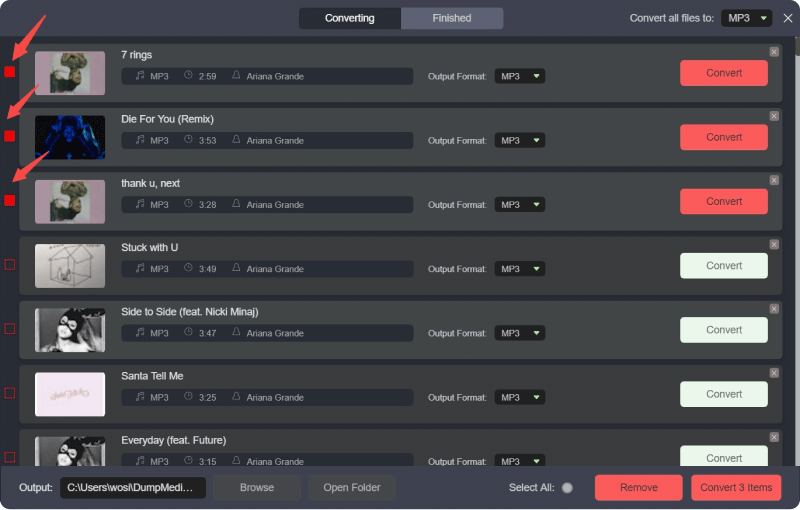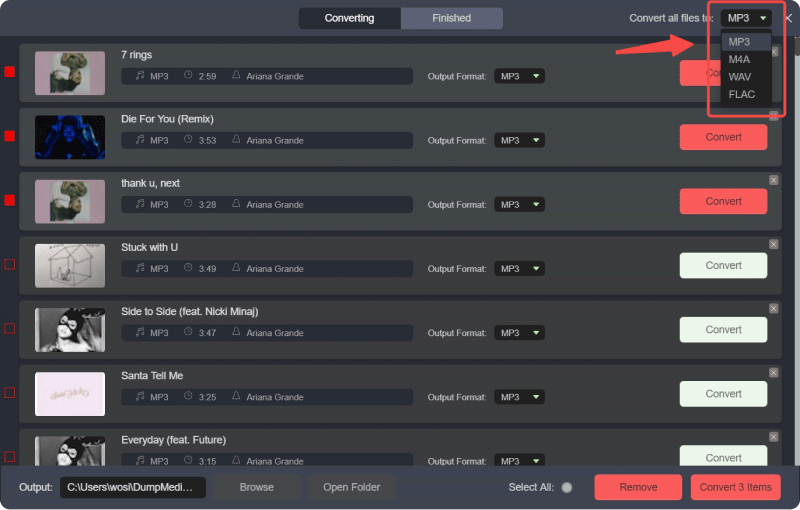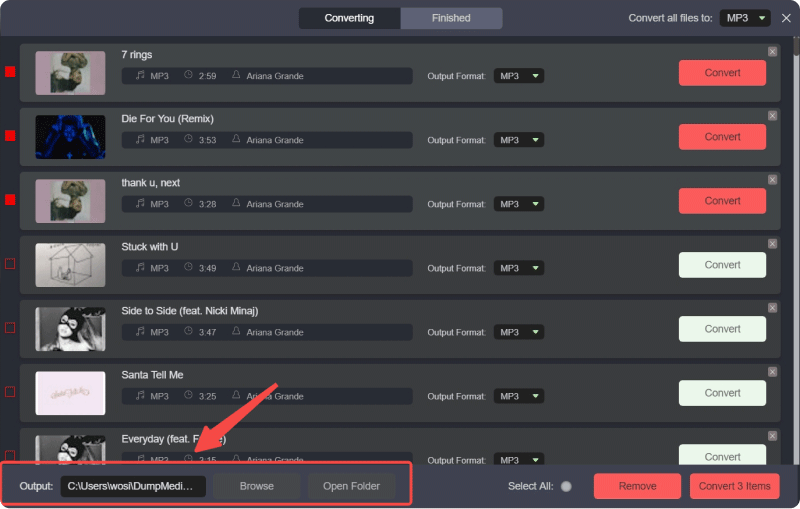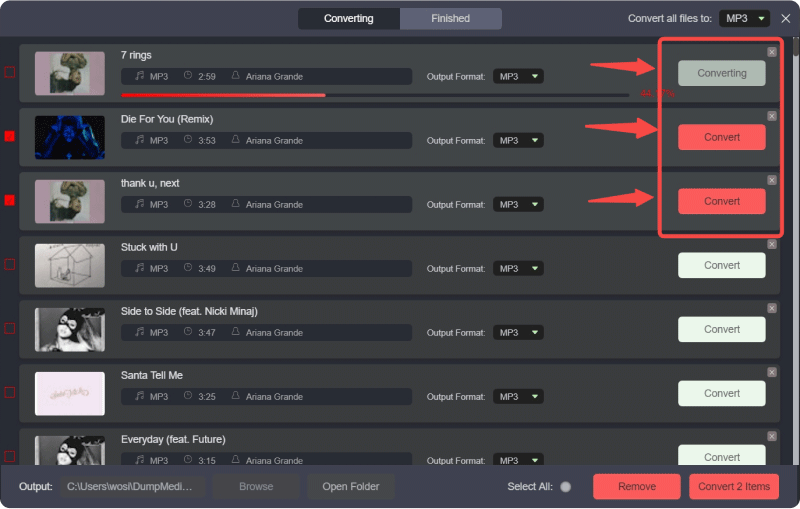How to Use Popular Music on YouTube Legally?
Video content creators should all know that music is the key to any quality video. Whether you are producing an advertisement, documentary, short film or Vlog, appropriate music selection can significantly enhance the audience's viewing experience.
Music not only evokes emotions in your audience and enhances the impact of your video, it also sets the overall tone and atmosphere of your video. For example, a piece of upbeat music can make the audience feel relaxed and happy, while a piece of deep music can create a tense or sad atmosphere.
In addition, using popular music in YouTube videos may also bring more views to the video. Therefore, carefully selecting and using music is an indispensable and important step for every creator who is committed to making high-quality videos.
But not everyone knows how to use popular music on YouTube. In this article, we will introduce you to the precautions in detail.
Contents Guide Part 1. Somethings about How YouTube Copyright WorksPart 2. How to Check YouTube Copyright WorksPart 3. Bonus: How to Convert YouTube Music Songs to MP3Part 4. Summary
Part 1. Somethings about How YouTube Copyright Works
Before learning how to use popular music on YouTube, you need to learn a little about YouTube copyright.
YouTube helps music owners secure their work and earn money by enabling people to use their music in YouTube videos. To do this, the platform utilizes a robust copyright system called Content ID. YouTube checks your videos every time you post one to see whether it includes any music that is protected by copyright. Should a match be discovered, a copyright claim will be sent to you.
When you receive a copyright claim, the following may happen:
- Ads will appear in your videos
- You will not be able to monetize your videos
- Your videos will be blocked in certain countries or regions
- Your videos will be muted
- Your videos will be blocked globally
Occasionally, using music that is protected by copyright in your YouTube videos may get you in legal hot water. Theoretically, a copyright lawsuit might arise from any use of content that is protected by copyright without the owner's express consent.
But don't worry, things aren't always as bad as they seem. Generally, all you'll get is the claim stated above, indicating that the music's copyright owner has granted you permission to use it as long as your films generate cash from advertising.
How to Legally Use Popular Copyrighted Music On YouTube
Actually, every music has a copyright. Every song that is copyrighted has a legitimate owner. Rest assured, the owner is most likely totally cool with you sharing their song on YouTube. You are permitted to utilize the following kinds of copyrighted music on YouTube:
1. Creative Commons Music
A lot of composers use Creative Commons licenses to share their works. Creative Commons music is freely used. You could, however, only be able to use the music in non-commercial videos or be required to provide credit to the creator, depending on the exact license. If you want to make money off of your YouTube videos, this might not be the greatest choice.
2. Ad Supported Music
YouTube has agreements with several publishers and record companies that permit producers to utilize their music in return for advertisements in their videos. Using popular music on YouTube might be a great idea if you don't mind advertisements. That being said, you won't be able to monetize your video. In other words, the song owner receives the ad money. For a hobby channel, this could be a nice solution, but it won't work for paid or promotional videos.
3. License Music
If you have the copyright owner's express consent or a license, you can utilize the song on YouTube.
Ways to get the license:
- Email indie artists you appreciate and request permission.
- For big recording artists, contact their publishers and record companies to negotiate the licensing. Typically, this would not be the most practical (or cost-effective) approach for a YouTuber.
- Obtain a license for royalty-free music created exclusively for video and commercial use. This is the finest choice for making money. Check that your music supplier supports copyright.
Part 2. How to Check YouTube Copyright Works
YouTube Creator Studio recently launched a new feature that allows creators to check their videos for copyright issues before publishing them. Here's a quick tutorial on how to quickly claim copyright for any music.
Step 1. Make a quick video
You can use any video footage you want, this is just for testing the copyright of the music.
Step 2. Upload videos to YouTube
In Creative Studio, begin uploading as you would any other video. Examine the Checks tab; it will be useful when processing is finished.
Step 3. View the results in the "Checks" tab
If the music doesn't have any claims, you'll see something like this: No issues found;
If the song has been registered with Content ID, you'll notice a large red exclamation point in the "Checks" tab (which would lead to a copyright claim on YouTube).
Part 3. Bonus: How to Convert YouTube Music Songs to MP3
Now that you know how to use popular music on YouTube legally, let’s look at how to listen to YouTube Music songs offline.
DumpMedia YouTube Music Converter might be quite helpful in this regard. You can convert YouTube streaming music into a number of open-source audio formats, including MP3, WAV, FLAC, and M4A, with this high-quality converter.
These commonly used formats work with almost all media players and gadgets, so you may easily listen to your favorite music offline. You may also enjoy your music exactly as intended, because the converter preserves excellent audio quality throughout the converting process.
Any music lover wishing to increase the amount of music in their offline collection should not be without DumpMedia YouTube Music Converter, thanks to its intuitive UI and quick conversion times.
Here are the detailed steps to convert music from YouTube:
Step 1: Install and Sign In
Download and install DumpMedia YouTube Music Converter on your computer. Once installed, open the software and sign in to your YouTube Music account.
Step 2: Select Songs
After signing in, browse your YouTube Music library to choose the songs or playlists you want to convert. You can use the search function to find specific tracks or explore your playlists and albums. Add your chosen songs to the conversion queue, making sure you’ve included all the tracks you want.

Step 3: Customize Output
Select your preferred output format (such as MP3 or AAC). Adjust additional settings like bitrate and sample rate to control the quality and size of the converted files. Customize these settings to ensure they will play optimally on your iPod.

Step 4: Choose Output Folder
Specify the folder on your computer where you want to save the converted files.

Step 5: Convert Songs
Click the "Convert" button to begin the conversion process. The software will swiftly convert your selected YouTube Music tracks into high-quality files. Once the conversion is complete, the files will be available in the specified output folder.

Part 4. Summary
Incorporating popular music into YouTube videos enhances viewer experience but requires navigating copyright rules. Use Creative Commons, ad-supported music, or obtain licenses to stay compliant. Tools like DumpMedia YouTube Music Converter help download and convert YouTube music for offline use, ensuring high-quality playback on any device.

30% Off >>>
